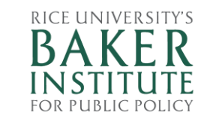Description
This event is held in partnership with:
The Strauss-Clements Intelligence Studies Project at the University of Texas at Austin
Supporting Organization:

A Council Cabinet Reception will precede the program. For information about Council Cabinet Membership, please click here
About the Program
The U.S. is arguably facing the most diverse and complex array of national security and foreign policy challenges in its history – from a resurgent Russia invading Ukraine to the vast global influence of China to the troubling nuclear programs of North Korea and Iran to the ever-evolving cyber threats.
As evidenced by the U.S. intelligence community’s accurate assessment that Putin was not merely bluffing with his threats to attack Ukraine, rigorous and timely intelligence is the vital foundation upon which American presidents and national security leaders base U.S. foreign policy from imposing sanctions to containing a dangerous regime or the ultimate decision to go to war.
Having served for 25 years in the CIA and then returning to serve the nation as the 5th U.S. Homeland Security Advisor and then the 5th Director of the Central Intelligence Agency, John Brennan has an unparalleled understanding at the highest level of the demands on U.S. intelligence in recent years and the concerns for the years to come.
Former Director Brennan will be joined in conversation by Stephen B. Slick, the inaugural Director of the Intelligence Studies Project at the University of Texas at Austin. Slick served 28 years as a member of CIA’s clandestine service and later as the Director for Intelligence Programs and Senior Director for Intelligence Programs and Reform for the National Security Council.
Brennan and Slick will discuss the state and future of U.S. intelligence and the complexities of assessing powerful actors, like China and Russia, rogue states, like North Korea and Iran, and ongoing terrorist threats posed by Al Aqaeda, ISIS and others from poorly governed spaces, such as Taliban controlled Afghanistan.
About the Speaker
John O. Brennan served as director of the Central Intelligence Agency from March 2013 until January 2017. As director, he was responsible for intelligence collection, analysis, covert action, counterintelligence, and liaison relationships with foreign intelligence services. From January 2009 to March 2013, Mr. Brennan was assistant to the president for homeland security and counterterrorism, shaping the U.S. Government’s counterterrorism strategy and coordinating Obama administration policies on homeland security, counterterrorism, cyberattacks, natural disasters, and pandemics.
Mr. Brennan began his government service at the CIA, where he worked from 1980 to 2005 and specialized in Middle Eastern affairs and counterterrorism. He served as CIA’s intelligence briefer to President Clinton, Chief of Staff to then Director of Central Intelligence George Tenet, and Deputy Executive Director. In 2003, he led a multi-agency effort to establish what would become the National Counterterrorism Center, serving as the Center’s first Director in 2004. He retired from CIA in 2005 and worked in the private sector for three years.
Mr. Brennan graduated from Fordham University in 1977 with a bachelor’s degree in political science. He studied at the American University in Cairo in 1975-1976. He attended the University of Texas at Austin, earning a master’s degree in government with a concentration in Middle Eastern studies in 1980. Mr. Brennan currently is a Distinguished Fellow at the Center on National Security at Fordham Law School, a Distinguished Scholar at the University of Texas at Austin, a senior intelligence and national security analyst for NBC, and an advisor to a variety of private sector companies.
Moderator: Stephen B. Slick
Stephen B. Slick is Director of the Intelligence Studies Project, a joint partnership between the William P. Clements Center for National Security and the Robert S. Strauss Center for International Security and Law. He retired in 2014 after 28 years as a member of CIA’s clandestine service.
Between 2005 and 2009, Steve served as a special assistant to the president and the Senior Director for Intelligence Programs and Reform on the staff of the National Security Council. He was previously the Director for Intelligence Programs at the NSC. While serving at the White House, Steve participated in efforts to restructure and reform the intelligence community informed by recommendations of the commissions charged with investigating the 9/11 attacks and the flawed pre-war analysis of Iraq’s unconventional weapons programs. These efforts included a series of executive orders on U.S. intelligence issued in August 2004, key provisions in the Intelligence Reform and Terrorism Prevention Act of 2004, the administration’s responses to recommendations by the “WMD Commission”, as well as significant amendments to Executive Order 12333 that were approved by President George W. Bush in 2008.
Steve completed five overseas tours as a CIA operations officer and manager, including service from 2009 to 2013 as the chief of station and director of national intelligence’s representative in a Middle Eastern capital. His assignments at CIA Headquarters included service as an executive assistant to the deputy director of central intelligence and leading CIA’s operations in the Balkans. Steve received CIA’s Medal of Merit, Commendation Medal and other awards.
Prior to joining CIA, Steve was a litigation associate at the law firm of Rawle and Henderson in Philadelphia. Steve received a B.A. from the Pennsylvania State University, J.D. from the UCLA School of Law, and Master in Public Policy from Princeton University’s Woodrow Wilson School of Public and International Affairs.
This event is graciously sponsored by



